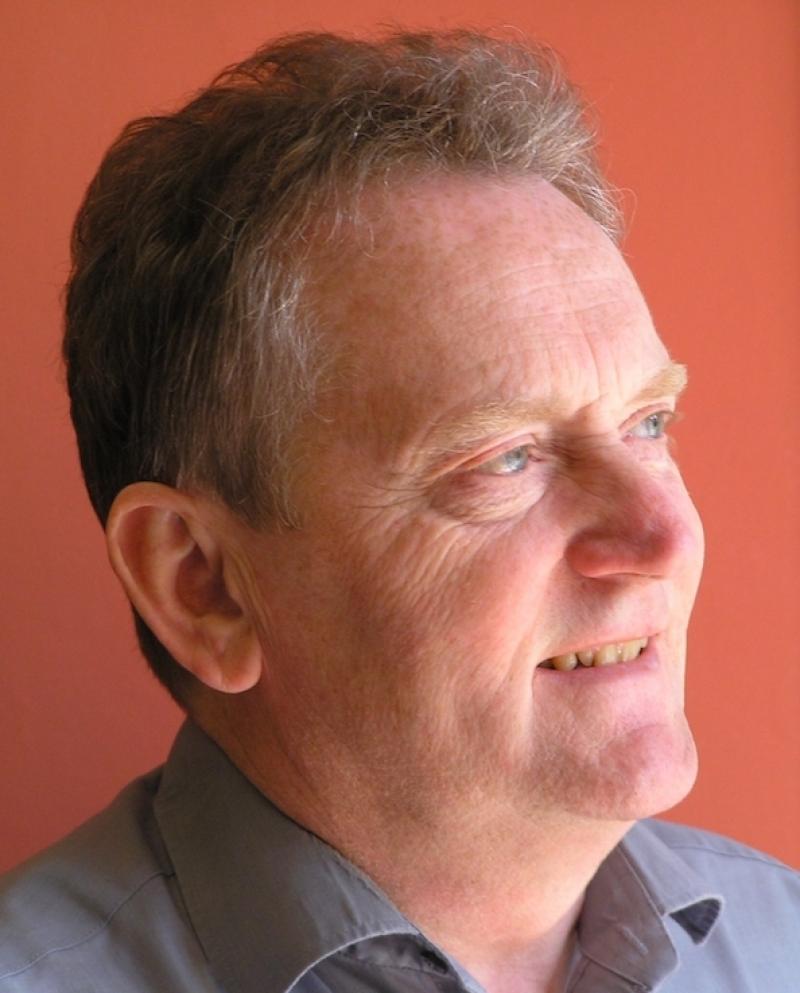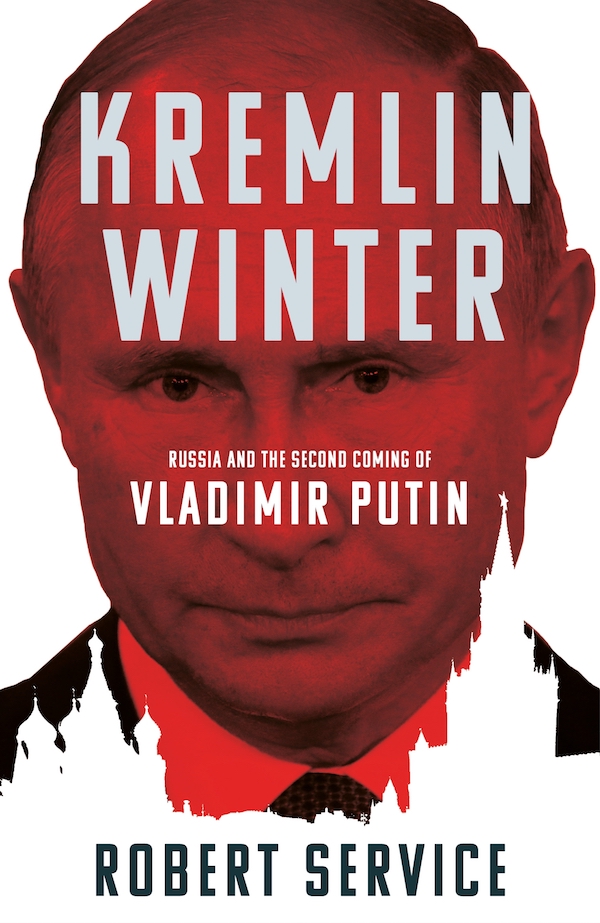Robert Service: Kremlin Winter review – behind Putin's masks | reviews, news & interviews
Robert Service: Kremlin Winter review – behind Putin's masks
Robert Service: Kremlin Winter review – behind Putin's masks
Stalin’s biographer turns his attention to contemporary Russia and its enigmatic president

When U.S. president George W. Bush looked into the eyes of Vladimir Putin he famously “saw his soul”. In his latest meditation on modern Russia, Britain's top Kremlinologist Robert Service gets as close to the Russian president’s soul as may be possible in a scholarly account.
Service’s dazzling flair for biography is Kremlin Winter’s shining strength. His forensic, almost psychological analysis never fails in its precision, and is so often disarming. At the book’s most lucid points, we are brought up close and personal with Putin – but never quite long enough for us to feel as if we have truly got him worked out. We find Putin almost play-acting as president. He appears to possess an uncanny knack for adjusting himself to any audience and any change in external circumstance. The Russian leader, as Service explains, is “chameleon-like”, a man of a thousand faces – “one moment he is like a torrent and the next like standing water”.
But there are moments when Putin’s mask slips. The author diligently records these. There is, for instance, Putin’s almost unshakeable chauvinism. He wears it like an old garment. It bursts forth in cruel public comments about his wife Lyudmila, whom he divorced in 2014. On another occasion, Putin tried to scare the German chancellor Angela Merkel (who has a fear of dogs) by bringing his pet Labrador Konni into their official meeting at his Sochi residence. Merkel responded with a withering critique of Putin’s insecurities. He has come unstuck more than stuck. When he lost his temper with former U.S. secretary of state Condoleezza Rice, he leapt up to stand over her. Rice, who towered over the Russian President (he is 5’6”), set him firmly back on his heels.
 For all his “Father of the Nation” shtick, Putin is not Russia. Nor is he a dictator. Kremlin Winter instead offers up a reading of the Russian president as a “detainee” of the system that he has presided over – not its “jailer”. Russia under Putin is not a Soviet-style totalitarian regime. There is still free air to breathe, even if its people are slowly suffocating. Putin does not – and could not – rule alone. Instead, he does so through a constellation of cadres in government, business and the media. Support is lent out on a quid pro quo basis. Self-interest is the name of the game, and loyal service is richly rewarded. Kremlin Winter is ambitious in its attempt to document every species of ally and auxiliary that has crowded around Russia’s seat of power. But Service’s unmistakable interest (and expertise) is in the portrayal of charismatic leaders. He does not quite seem to know what to do with the Kremlin’s greyer apparatchiks, the oligarch hangers-on or the sycophants in the Russian media.
For all his “Father of the Nation” shtick, Putin is not Russia. Nor is he a dictator. Kremlin Winter instead offers up a reading of the Russian president as a “detainee” of the system that he has presided over – not its “jailer”. Russia under Putin is not a Soviet-style totalitarian regime. There is still free air to breathe, even if its people are slowly suffocating. Putin does not – and could not – rule alone. Instead, he does so through a constellation of cadres in government, business and the media. Support is lent out on a quid pro quo basis. Self-interest is the name of the game, and loyal service is richly rewarded. Kremlin Winter is ambitious in its attempt to document every species of ally and auxiliary that has crowded around Russia’s seat of power. But Service’s unmistakable interest (and expertise) is in the portrayal of charismatic leaders. He does not quite seem to know what to do with the Kremlin’s greyer apparatchiks, the oligarch hangers-on or the sycophants in the Russian media.
Service’s grasp of the broader span of Russian history proves indispensable in his analysis of the problems facing the country. Russia’s twentieth century trauma is never absent. From the Stalinist terror to the breakup of the Soviet Union and the ensuing chaos, uncertainty and banditry of the Yeltsin-era 1990s, Russia’s consciousness is defined by its past. It is suffering from what Service describes as “post-superpower syndrome.” Putin’s success lies in the fact that he has made many Russians feel better about themselves. Service reserves particular criticism for the Kremlin’s pillaging of history to furnish this national myth. Russia remains profoundly uncomfortable with its past.
Much of the second half of Kremlin Winter reads like a miscellany of horrors. How could it not? Since Putin’s “second coming”, when he was once again elected president in 2012 after a stint as prime minister, the Kremlin has embraced traditionalism, nationalism and militarism. The most intractable fracture of recent years has been Russia’s war in eastern Ukraine, and its (expensive) annexation of the Crimean peninsula. Buoyed by the West’s restrained response to the actions of the Russian forces in Georgia in 2008, Service argues that Putin made the catastrophic mistake of thinking to launch a similar campaign in Ukraine in 2014. Instead, it has left him with a problem that will not go away.
Like the president himself, Putin’s administration wears a mask. Its self-image is inherently unstable. In earlier times, this led to the Kremlin’s curious regard for public relations (it even once hired a PR firm to tidy up its image). This seems almost quaint in the light of the events of recent events. Trust for Putin within the international community has been all but decimated by Russia’s increasing repression of dissent and free expression at home, its backing of the muderous Assad regime in Syria, electoral interference overseas, allegations of collusion with the Trump campaign, novichok on the streets of Salisbury – but most of all its “land-grab” in Crimea. The Kremlin now typically resorts to swivel-eyed nationalism. Putin has sometimes assumed the role of Arch-Paranoiac, which began when he blamed the so-called “colour-revolutions” in Ukraine and Georgia in the early 2000s on the West. Russia’s deteriorating relationship with Washington, in particular, has led to an entrenchment of this tendency which has now become an unhealthy fixation.
Service concludes with a defence against pessimism, and a call for hope. Change is possible, but readers of the Kremlin Winter will surely wonder how things got so bad.
- Kremlin Winter: Russian and the Second Coming of Vladimir Putin by Robert Service (Picador, £25)
- Read more book reviews on theartsdesk
The future of Arts Journalism
You can stop theartsdesk.com closing!
We urgently need financing to survive. Our fundraising drive has thus far raised £49,000 but we need to reach £100,000 or we will be forced to close. Please contribute here: https://gofund.me/c3f6033d
And if you can forward this information to anyone who might assist, we’d be grateful.

Subscribe to theartsdesk.com
Thank you for continuing to read our work on theartsdesk.com. For unlimited access to every article in its entirety, including our archive of more than 15,000 pieces, we're asking for £5 per month or £40 per year. We feel it's a very good deal, and hope you do too.
To take a subscription now simply click here.
And if you're looking for that extra gift for a friend or family member, why not treat them to a theartsdesk.com gift subscription?
more Books
 'We are bowled over!' Thank you for your messages of love and support
Much-appreciated words of commendation from readers and the cultural community
'We are bowled over!' Thank you for your messages of love and support
Much-appreciated words of commendation from readers and the cultural community
 Thomas Pynchon - Shadow Ticket review - pulp diction
Thomas Pynchon's latest (and possibly last) book is fun - for a while
Thomas Pynchon - Shadow Ticket review - pulp diction
Thomas Pynchon's latest (and possibly last) book is fun - for a while
 Justin Lewis: Into the Groove review - fun and fact-filled trip through Eighties pop
Month by month journey through a decade gives insights into ordinary people’s lives
Justin Lewis: Into the Groove review - fun and fact-filled trip through Eighties pop
Month by month journey through a decade gives insights into ordinary people’s lives
 Joanna Pocock: Greyhound review - on the road again
A writer retraces her steps to furrow a deeper path through modern America
Joanna Pocock: Greyhound review - on the road again
A writer retraces her steps to furrow a deeper path through modern America
 Mark Hussey: Mrs Dalloway - Biography of a Novel review - echoes across crises
On the centenary of the work's publication an insightful book shows its prescience
Mark Hussey: Mrs Dalloway - Biography of a Novel review - echoes across crises
On the centenary of the work's publication an insightful book shows its prescience
 Frances Wilson: Electric Spark - The Enigma of Muriel Spark review - the matter of fact
Frances Wilson employs her full artistic power to keep pace with Spark’s fantastic and fugitive life
Frances Wilson: Electric Spark - The Enigma of Muriel Spark review - the matter of fact
Frances Wilson employs her full artistic power to keep pace with Spark’s fantastic and fugitive life
 Elizabeth Alker: Everything We Do is Music review - Prokofiev goes pop
A compelling journey into a surprising musical kinship
Elizabeth Alker: Everything We Do is Music review - Prokofiev goes pop
A compelling journey into a surprising musical kinship
 Natalia Ginzburg: The City and the House review - a dying art
Dick Davis renders this analogue love-letter in polyphonic English
Natalia Ginzburg: The City and the House review - a dying art
Dick Davis renders this analogue love-letter in polyphonic English
 Tom Raworth: Cancer review - truthfulness
A 'lost' book reconfirms Raworth’s legacy as one of the great lyric poets
Tom Raworth: Cancer review - truthfulness
A 'lost' book reconfirms Raworth’s legacy as one of the great lyric poets
 Ian Leslie: John and Paul - A Love Story in Songs review - help!
Ian Leslie loses himself in amateur psychology, and fatally misreads The Beatles
Ian Leslie: John and Paul - A Love Story in Songs review - help!
Ian Leslie loses himself in amateur psychology, and fatally misreads The Beatles
 Samuel Arbesman: The Magic of Code review - the spark ages
A wide-eyed take on our digital world can’t quite dispel the dangers
Samuel Arbesman: The Magic of Code review - the spark ages
A wide-eyed take on our digital world can’t quite dispel the dangers
 Zsuzsanna Gahse: Mountainish review - seeking refuge
Notes on danger and dialogue in the shadow of the Swiss Alps
Zsuzsanna Gahse: Mountainish review - seeking refuge
Notes on danger and dialogue in the shadow of the Swiss Alps

Add comment